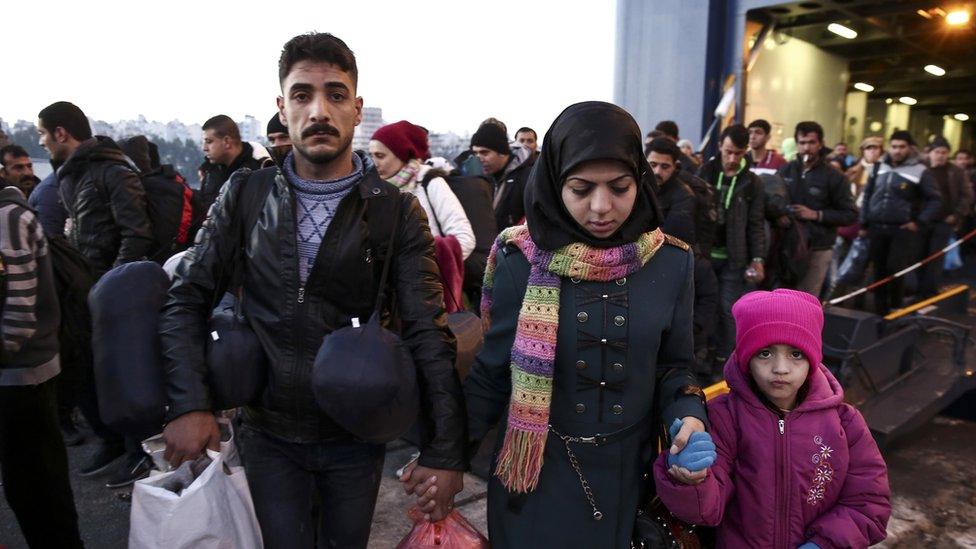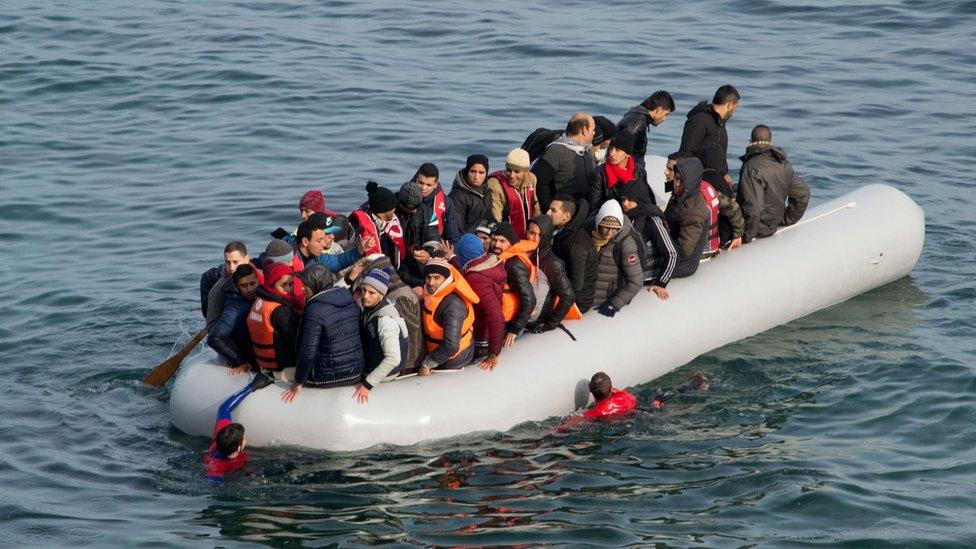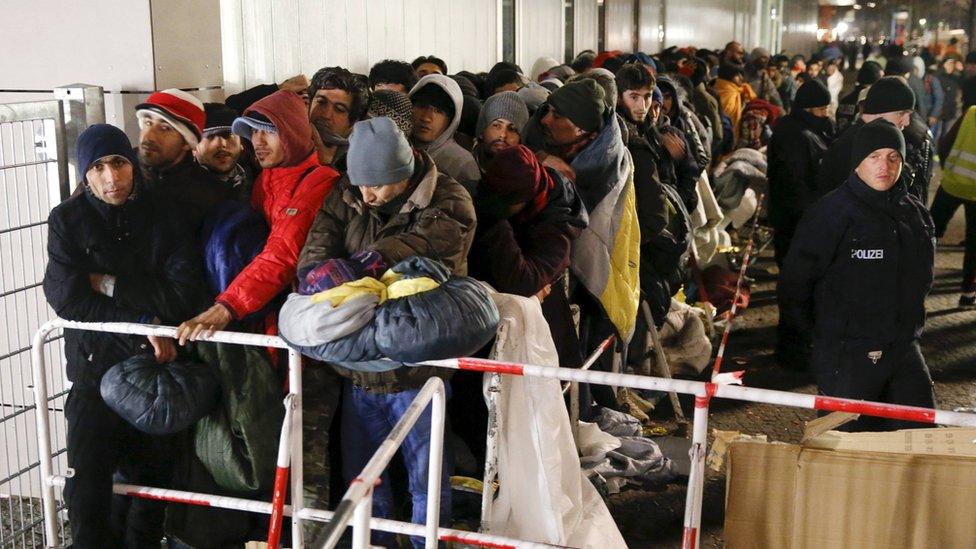Migrant crisis: Over one million reach Europe by sea
- Published
- comments
Jenny Hill first travelled to Abensberg in December 2015
More than one million refugees and migrants have reached Europe by sea since the start of 2015, the United Nations refugee agency (UNHCR) says.
More than 80% of the 1,000,573 people arrived in Greece, with the majority landing on Lesbos island, it said.
About 844,000 travelled to Greece from nearby Turkey. Most of the others - over 150,000 - crossed the Mediterranean from Libya to Italy.
The migrant crisis is Europe's worst since World War Two.
Migration to Europe in graphics
Migrants offered 'bad weather discounts'
The migrants reaching Europe by land
The number of sea arrivals has increased vastly since 2014, when it was recorded at slightly more than 216,000.
"Increasing numbers of refugees and migrants take their chances aboard unseaworthy boats and dinghies in a desperate bid to reach Europe," the UNHCR said on its website, external.
"The vast majority of those attempting this dangerous crossing are in need of international protection, fleeing war, violence and persecution in their country of origin."

About 49% of those crossing the Mediterranean Sea are from Syria, with 21% coming from Afghanistan, it added.
The number of those dead or missing at sea is now at 3,735.
The BBC's Paul Adams in Lesbos says that while the island feels less overwhelmed than usual, thousands more people are still waiting to be registered so they can travel further into Europe.

Most migrants arrive on Greek islands from Turkey

Increasing numbers are travelling to Europe by sea

The majority travel to Germany, which has accepted a million refugees and migrants
On 21 December, the International Organization for Migration (IOM) said the total number of migrants arriving by both land and sea had reached more than 1,006,000.
Many migrants are still making the journey to Europe despite winter weather. The influx has caused tension within the EU, with some states putting up fences and reimposing frontier controls.
Last week, the EU agreed to increase the number of Frontex agency staff in Greece, where most migrants arrive before travelling further into Europe.
Germany says it has received more than a million refugees and migrants, the largest number of any European country, but this includes a large number from the Balkan states who are not counted in the sea arrivals.
A note on terminology: The BBC uses the term migrant to refer to all people on the move who have yet to complete the legal process of claiming asylum. This group includes people fleeing war-torn countries such as Syria, who are likely to be granted refugee status, as well as people who are seeking jobs and better lives, who governments are likely to rule are economic migrants.